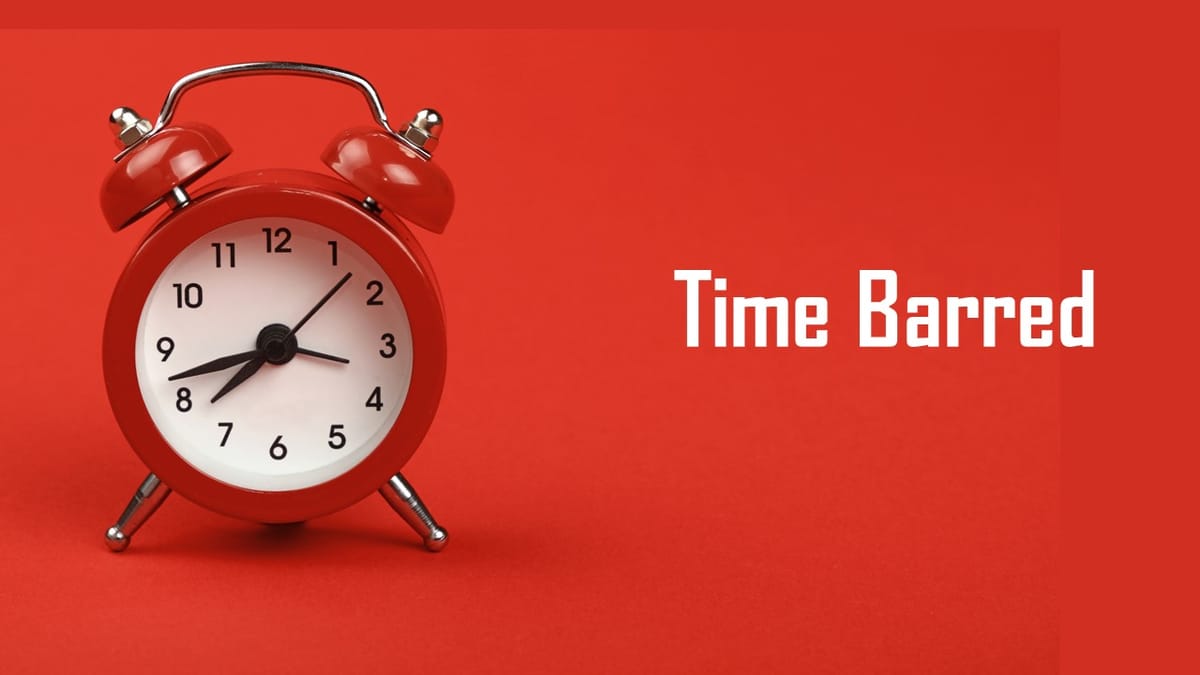CA Pratibha Goyal | Sep 7, 2022 |

Complaint made against CA for misconduct committed more than seven years ago Time Barred: HC
Delhi High Court in matter of ASHISH AGARWAL vs INSTITUTE OF CHARTERED ACCOUNTANT OF INDIA concluded that complaint related to an alleged misconduct committed more than seven years prior to the Institute taking cognizance of the same and would, therefore, be barred under Rule 12 of the 2007 Rules.
Relevant Extract:
11. Having noticed the rival contentions, the Court notes that the contentions addressed at the behest of the petitioner, appear to proceed on the assumption that Rule 12 constructs a rule of limitation in respect of complaints relating to professional misconduct. Learned counsel appearing for the petitioner has contended that Rule 12 must be construed as erecting a bar against cognizance being taken of complaints which may relate to allegations of misconduct committed more than seven years ago. Learned counsel sought to urge that the moment it is found that the complaint rests on acts of misconduct committed more than seven years ago, the same must not only be shelved, the Director Discipline must refuse to take cognizance of the same. The Court finds itself unable to accept the aforesaid submissions for the following reasons.
12. It would be pertinent to firstly note that Rule 12 does not expressly debar the Director Discipline from entertaining a complaint merely because it may relate to acts of misconduct committed seven years prior to the same being lodged. The said Rule also does not prescribe that a complaint would not lie if it be preferred seven years after the alleged misconduct was committed. Rule 12 is founded on the satisfaction of the Director Discipline that the circumstances envisaged and stipulated therein render it impracticable to conduct an enquiry. That satisfaction may be arrived at if the Director be of the considered opinion that it would be difficult to gather evidence in connection with the complaint made or where it be of the view that the member would find it difficult to lead evidence to defend himself effectively in the proceedings contemplated. The Director could arrive at the aforesaid conclusions either on account of the time that may have elapsed since the commission of the misconduct or on account of other changes that may tend to make the enquiry “procedurally inconvenient or difficult” to hold. It is in the aforesaid circumstances that the Director “may refuse” to entertain a complaint preferred seven years after the commission of the misconduct.
13. The usage of the expressions “is satisfied” and “may refuse” in Rule 12 clearly detract from that provision being construed or understood as a rule of limitation or one which may warrant a complaint being shelved the moment it is found that it pertains to an act of misconduct committed more than seven years ago. Rule 12 confers a power on the Director to examine and weigh into consideration whether the lapse of time since the commission of the alleged misconduct renders the holding of the enquiry reasonably impracticable. The formation of opinion in this regard may rest on either a difficulty in securing evidence or even where it be found that the “time lag” between the commission of the misconduct and the making of the complaint would place the member under an unreasonable burden of collecting material and evidence which may be required to proffer a wholesome defense. The Court thus finds itself unable to accept the contentions advanced on behalf of the petitioner that the complaint proceedings must be interdicted merely because seven or more years have elapsed since the commission of the misconduct.
14. However, that still leaves the Court to consider the validity of the impugned order passed by the respondents in terms of which the objection taken by the petitioner based on Rule 12 has been summarily rejected. The Court is of the considered opinion that the respondent was clearly unjustified in rejecting the objection that was raised outrightly as it has in terms of the impugned order. The Court notes that before proceeding to reject that objection, it was incumbent upon the respondent to have duly considered whether the petitioner was in fact severely handicapped from submitting a response to the allegations levelled in the complaint as also whether there was material and evidence available on the basis of which the enquiry could be proceeded with. It was, in the considered opinion of this Court, incumbent upon the respondent to have recorded cogent reasons in support of its conclusion that the objection taken with reference to Rule 12 was unfounded or unjustified. This the respondent has clearly failed to do since it has straight away proceeded to reject the objection taken without any discussion or recordal of reasons. For all the aforesaid reasons, the matter would merit being remanded to the respondent for consideration of the issue afresh. The Court also takes on board the statement of learned counsel for the petitioner who had stated that the objections taken by the petitioner may be treated as the written statement under the 2007 Rules and the respondent be directed to decide the issue in accordance with law.
15. Accordingly, and for all the aforesaid reasons, the writ petition along with the pending applications is allowed. The impugned order 22 September 2021 is quashed and set aside. Bearing in mind the statement made on behalf of the petitioner that the preliminary reply / objections be treated as the written statement of the petitioner, the Disciplinary Directorate may proceed further in the matter afresh bearing in mind the observations made hereinabove.
In case of any Doubt regarding Membership you can mail us at [email protected]
Join Studycafe's WhatsApp Group or Telegram Channel for Latest Updates on Government Job, Sarkari Naukri, Private Jobs, Income Tax, GST, Companies Act, Judgements and CA, CS, ICWA, and MUCH MORE!"